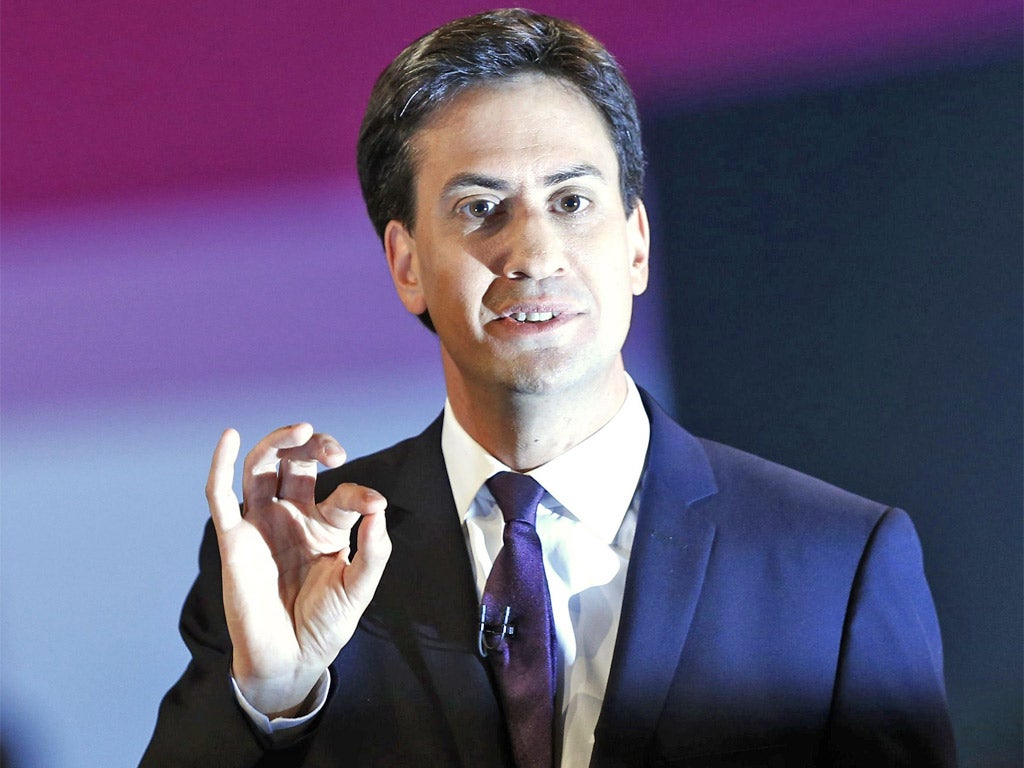Price freeze or consumer squeeze? Two experts give their view on Labour's plans for lower energy prices
Ed Miliband says he will cap energy prices for nearly two years if he wins the election. Will it help consumers or cripple fuel companies?

For: Reg Platt
IPPR Senior Research Fellow
There are four main criticisms of Ed Miliband's pledge to freeze energy prices until January 2017 if he was elected in May 2015. The first is that it will make the energy companies uneconomical to run, risking their collapse. Second, that the energy companies will hike their prices before the freeze is introduced. Third, that it will reduce the investments the companies make in new energy supplies, risking shortages and blackouts. Fourth, that the policy heralds a return to "70s-style socialism". The first three criticisms are little more than scaremongering. The last point is fundamentally wrong.
Let's take each charge in turn. A prize freeze would mean the energy companies have to absorb increases in their costs without passing them on to bill payers. But the companies have several options, none of which risks their commercial viability. They could reduce profit margins, squeeze operational costs and, if necessary, run at a loss until the price freeze isover. The biggest risk they face is if a cold winter leads to a spike in wholesale costs. In these circumstances, if necessary, they could turn to their shareholders for support.
The second charge – that the companies could meet the costs of the freeze by hiking prices before it is introduced – is highly unlikely. All price changes are scrutinised by the regulator Ofgem and by hiking prices early the companies will play straight into Labour's hands, reinforcing the argument they are ripping off bill payers. On the third criticism, the freeze could affect the ability of energy companies to raise cheap capital and invest in new energy supplies. But this will not affect the UK's security of supply. If supplies get particularly tight the Government could bring on-line power stations currently lying idle. Blackouts that occurred in California were the result of illegal market manipulation combined with price-fixing and are not representative of what would happen in the UK.
The fourth and final criticism, that it marks a shift from having a market in energy towards excessive state control, fails to acknowledge the wider package of measures Labour intends to introduce, with plans to break up the big energy companies, force them to buy and sell energy on an open market, and bring in a tougher regulator.
So Mr Miliband is to be applauded for a bold approach. This plan could work.
Against: Professor Philip Booth
Editorial and Programme Director at the Institute of Economic Affairs
Economists tend to agree that, if you wish to lower the price of something, then a price cap is the worst way to achieve the objective. The UK private rental market was decimated by rent controls; perhaps more pertinently, Californians sat in the dark because of their own version of Miliband's proposed energy market price caps.
If suppliers cannot profit from selling energy, they will simply stop supply. They will withdraw from the market, stop investing and erode their services in other ways. Furthermore, political interference in the market raises the risk that energy suppliers face when choosing whether to invest. More interference means less investment or a higher required return on investments – in the long term this feeds into prices.
It is possible to argue that prices are artificially high in energy markets because of a lack of competition. This may be a factor, but only a minor one. In fact, prices are relatively low in the UK compared with other EU countries and profit margins on selling energy are not excessive.
But, if this is a problem of lack of competition, the solution is to give the energy regulator stronger competition powers. The energy regulators had and used these powers in the time after privatisation. However, the last Labour government turned the energy regulators into an organisation that was used to promote the government's micro-management agenda and reduced the focus on competition. The Coalition has continued with that policy.
The other great irony is that the main reason why energy prices are so high is because of the decarbonisation agenda. This is not the place to debate that agenda. However, if you support decarbonisation it comes with a cost. Either prices are raised to reduce demand for carbon-intensive energy or consumers have to pay the costs of using renewables – or both. Electricity might be between 30 and 50 per cent cheaper without carbon reduction targets; gas perhaps 20 per cent cheaper. It is perfectly rational to argue that the energy industry should reduce its carbon emissions but it is foolish to argue that this can be done without increasing bills.
The fact is that both the Opposition and the Government are caught in a mess caused by their own policy contradictions.
Subscribe to Independent Premium to bookmark this article
Want to bookmark your favourite articles and stories to read or reference later? Start your Independent Premium subscription today.

Join our commenting forum
Join thought-provoking conversations, follow other Independent readers and see their replies